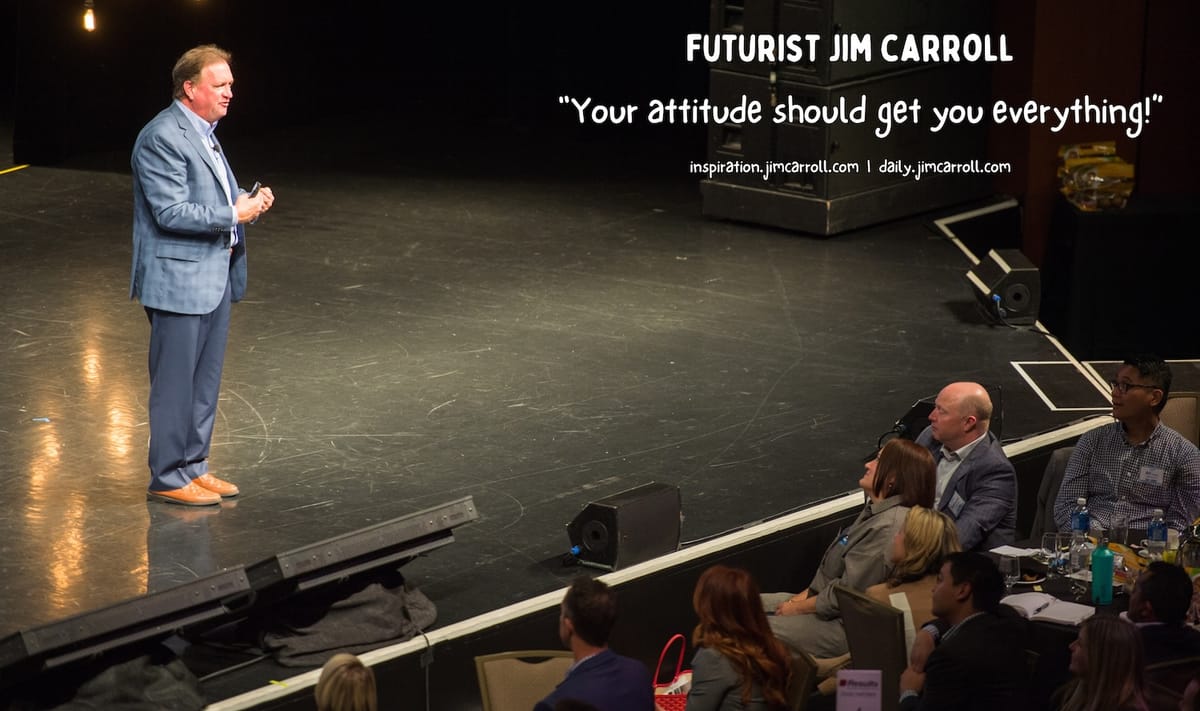"Your attitude should get you everything!” - Futurist Jim Carroll
The business of recruitment is broken.
In the last many years, much of it has moved to a world of automated resume processing, analytical examination of talent and skills, and the dominance of cold, hard statistical analysis. Many companies simply demand a cover letter and a LinkedIn page. Quality candidates often never make their way through the assembly-line methodology of calculated inference - instead, those who best match the algorithm are those who get the chance of an actual interview. By and large, it's been doing the same thing in the same old way for many years - and the implementation of AI into the recruitment and hiring workflow promises to make things worse, not better.
There is growing acknowledgment in the world of HR that the current system is badly broken.
For the last couple of decades, the perfect CV has been considered the golden ticket to an applicant’s dream job. But now, as we investigate the data, we see it could actually be harming recruiters from finding the most suitable candidate for the role. A study from G2 shows that companies can lose as many as 89% of potential candidates due to prolonged screening processes. A large group of desirable candidates, especially younger people, demand straightforward processes as technology advances.
Is the future of hiring based on attitude over qualifications?
30 August 2023, Personnel Today
Instead of the current system, organizations should hire people based on their attitude. Their initiative, mindset, optimism, quirkiness, and oddness should matter - not the perfection of their resume structure. People should be hired on who they are - rather than what they were. It's a tall order - the world of HR is one of those that cling to the methodologies of yesterday like the drowning cling to a live preserver. But some are starting to move down that path of change:
Life constantly brings a mix of challenges and opportunities both at work and outside of it. Rather than simply focusing on academic accomplishments, companies should give importance to assessing candidates based on their capacity to address real-world problems and solve tasks. Many companies are finding that what makes an employee truly valuable is their adaptability, willingness to learn, and ultimately, a good work ethic.
Rather than simply focusing on academic accomplishments, companies should give importance to assessing candidates based on their capacity to address real-world problems and solve tasks.
Is the future of hiring based on attitude over qualifications?
30 August 2023, Personnel Today
As someone who is relentlessly focused on the future,. I'd rather hire someone who has a great attitude than someone who has great skills. I'd be asking questions like: How do you approach the future? What's your attitude towards change? What are you doing to align with what's next?
If you put me in charge of the job application process or the interview box, here's what I'd ask the potential candidate:
- Tell me about a time you had to get creative to solve a weird problem. Like, how did you come up with that weird solution?
- Ever notice something at work that made you think "There's gotta be a better way"? What would you do to improve or shake things up?
- Where do you see your job or industry headed in the next 5-10 years? What kinds of new opportunities or challenges might pop up?
- Things change fast these days. Give me an example of when you had to adapt to a major shift or disruption on the fly. How did you handle that?
- I bet you've dealt with people being stuck in their ways before. Tell me about a time you had to break through that complacency or resistance to change.
- What's something people said couldn't be done, but you found a way to make it happen? Walk me through how you pulled that off.
- Things can move super fast sometimes. When was the last time you had to make snappy decisions under time pressure? How did you manage?
- Ever had to make a tough call without all the info you wanted? How did you cut through that uncertainty and indecision?
- When was the last time you just said "ya know, this process or policy doesn't make any sense"? What did you do about it?
- What kinds of changes would you love to make in this field or industry if you could? What's your big, crazy dream for shaking things up?
I'd hire the person who gave me the best, most creative answers - not necessarily the right answers!
Because I'd be hiring on attitude - and finding the person who knows that their attitude can get them everywhere!
Futurist Jim Carroll hasn't had a traditional job for 35 years. He figures that he wouldn't make it through most of the traditional job application processes that are in place today.

